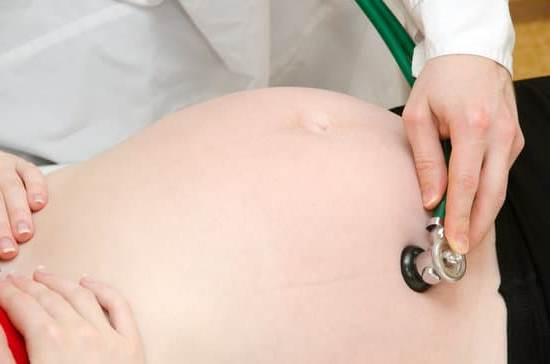What are Estrogen Levels in Pregnancy?
During pregnancy, the female body’s estrogen levels are typically higher than normal. Estrogen is a hormone produced in the ovaries and other areas in the body. It helps prepare the body for pregnancy and is responsible for maintaining the pregnancy. Estrogen levels can change throughout a woman’s pregnancy, from the early stages to the third trimester.
Why Estrogen Levels Increase During Pregnancy?
Increased estrogen during pregnancy serves several purposes for a woman’s body. During the first trimester, estrogen helps prepare the uterus for a fertilized egg. It works by encouraging tissue building in the uterus and therefore increasing the chance of implantation. High estrogen levels also stop ovulation, or the release of eggs from the ovaries. This helps protect the woman from having a multiple pregnancy. The placenta is a source of estrogen production during pregnancy and continues to provide estrogen throughout the entire pregnancy.
Effects of Estrogen During Pregnancy
Estrogen is responsible for various things during pregnancy. It helps to prepare the body for lactation, and is even thought to regulate the flow of blood to the uterus. Estrogen levels increase during pregnancy in order to encourage proper development of the fetus. It also helps to control the ongoing hormonal and physical changes a pregnant woman is undergoing. Estrogen levels during pregnancy can affect the baby as well. For example, high levels of estrogen during the first trimester has been associated with a higher chance of having a female baby.
What is a Normal Estrogen Level During Pregnancy?
Estrogen levels naturally rise and fall throughout pregnancy depending on the stage of pregnancy. Normal estrogen levels vary throughout the pregnancy. The estrogen levels might be higher during the first and second trimester, then decrease during the third trimester.
First Trimester
The normal level of estrogen should be relatively low. It should be between 5-30 pg/mL before the 10th week of pregnancy.
Second Trimester
After the 10th week, estrogen can increase to approximately 40-500 pg/mL.
Third Trimester
During the third trimester, estrogen levels typically fall due to the placenta no longer producing estrogen. The normal level of estrogen should be at 1-20 pg/mL near the end of the pregnancy.
What are the High Estrogen Level Symptoms During Pregnancy?
High estrogen levels during pregnancy can have serious and unpleasant side effects, although often the symptoms can go unnoticed. Some of the common signs of high estrogen levels during pregnancy include:
- Mood swings
- Headaches
- Nausea
- Depression
- Bloating
- Vaginal bleeding
- Breast tenderness and swelling
- Gastrointestinal problems
- Skin changes such as acne
- Weight gain
Can High Estrogen Levels During Pregnancy be a Risk to the Baby?
High estrogen during pregnancy can be a risk to the baby. High levels of estrogen can slow the baby’s growth and can lead to premature birth. High levels of estrogen can also cause an overproduction of amniotic fluid. This can in turn cause an increased risk of a baby born with cardiovascular problems or other medical issues.
It is important to be aware of your estrogen levels during pregnancy. High levels of estrogen can be a sign of a medication overdose, hyperthyroidism, or another medical condition. If you experience any symptoms of high estrogen during pregnancy, it is best to consult a doctor as soon as possible.
Conclusion
Estrogen levels can drastically change during pregnancy. It helps to regulate the pregnancy, prepare for labor and delivery, and control the ongoing physical and emotional changes that a pregnant woman experiences. It is important to know your normal levels and to visit a doctor if any symptoms arise. High estrogen during pregnancy can be a risk to the baby, so it is best to be aware of any changes in your body during pregnancy.

Welcome to my fertility blog. This is a space where I will be sharing my experiences as I navigate through the world of fertility treatments, as well as provide information and resources about fertility and pregnancy.





